Polyaenus
2nd Century Macedonian rhetorician and pleader who lived in Rome and was the author of a work entitled Strategica (or Strategemata), which he dedicated to the emperors Marcus Aurelius and Lucius Verus on the outbreak of the Parthian War (162–165AD).
The Strategica, still extant, is a historical collection of stratagems and maxims of military strategy written in Greek and strung together in the form of anecdotes; it also includes examples of wisdom, courage, and cunning from civil and political life. Comprising eight books (parts of the sixth and seventh are lost), it originally contained ... (100 of 171 words)
This is a small piece into the writings of Polyaenus the Macedonian;
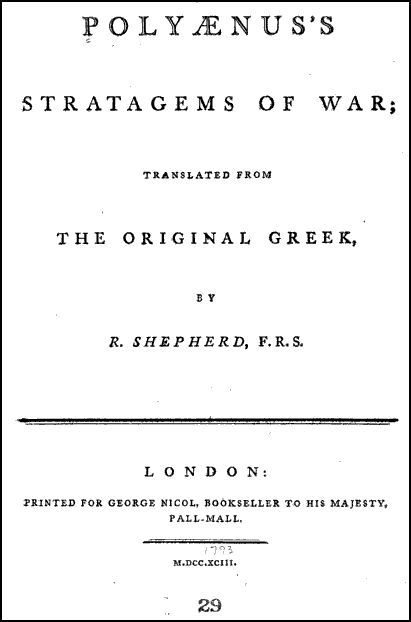
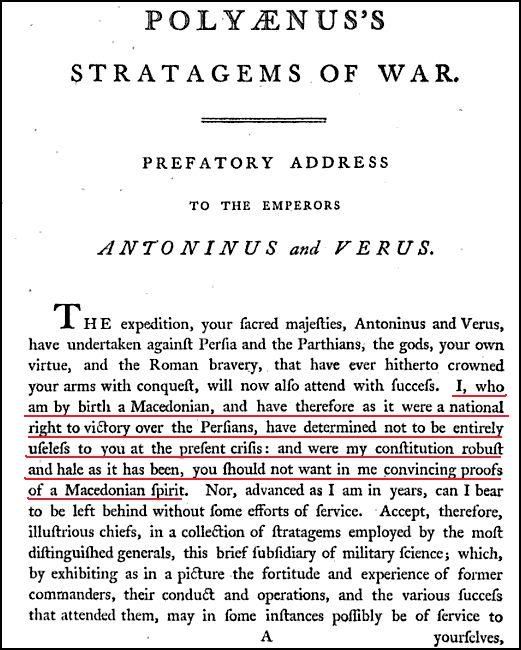
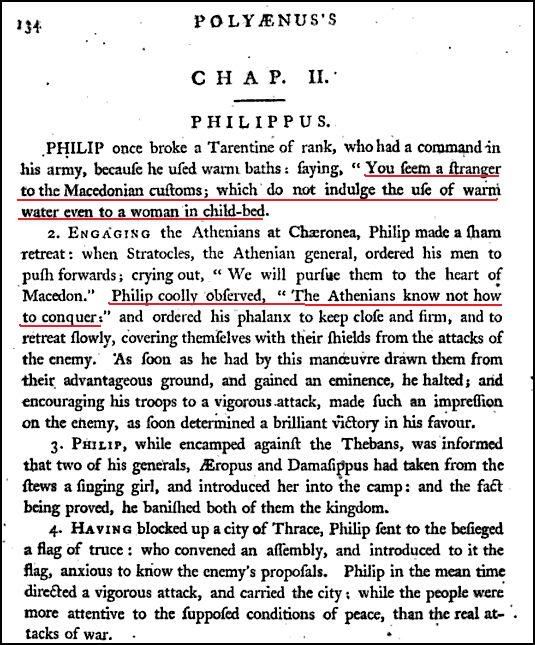
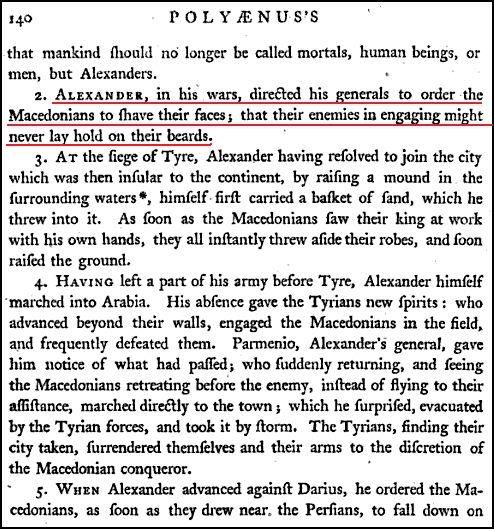
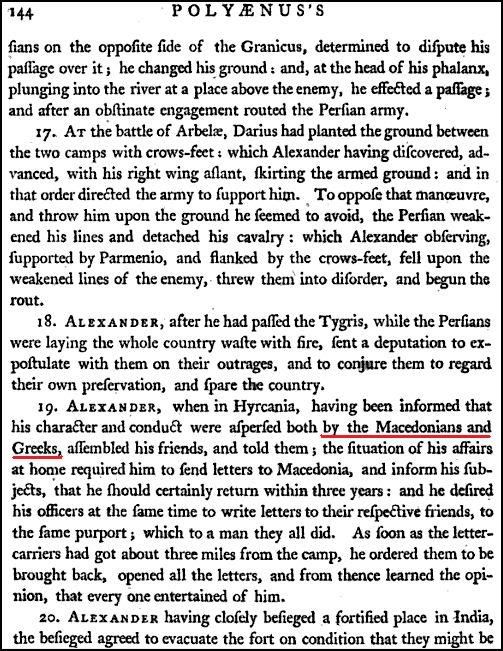
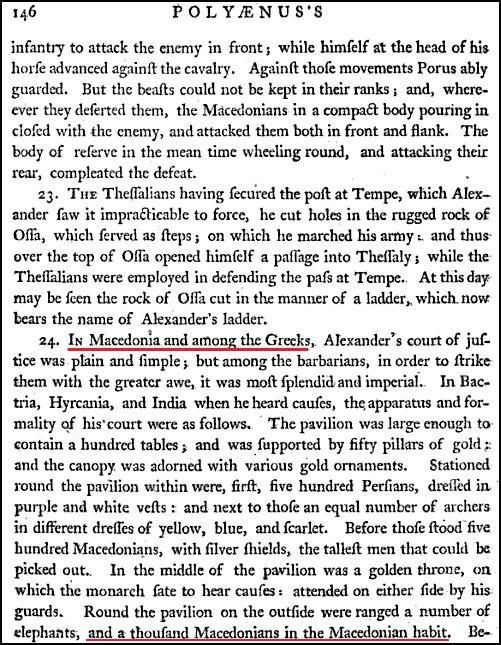




 instead of Macedonians Bratot lol. Nice sites.
instead of Macedonians Bratot lol. Nice sites.






Comment